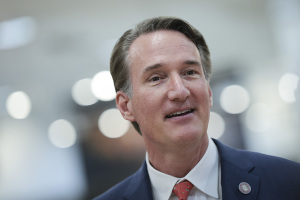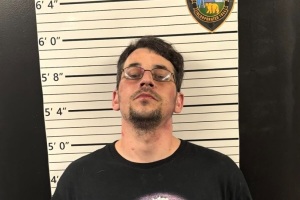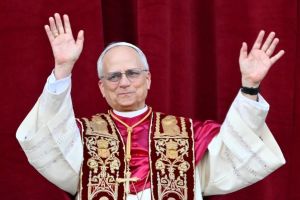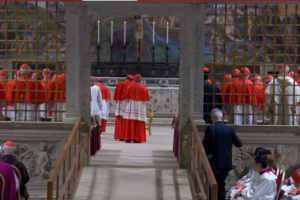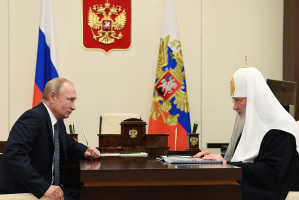Emilio Estevez says he's passionate about authenticity in film, telling human stories: 'God loves us in our imperfection'
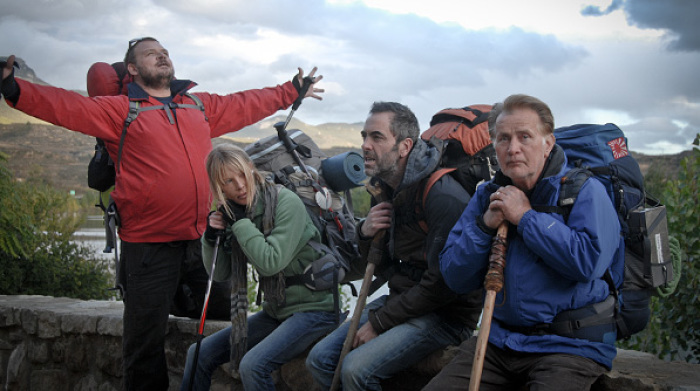
Hollywood veteran Emilio Estevez understands firsthand the power of storytelling. A member of the industry’s elite Sheen family, he shot to fame in the 1980s as a member of the “Brat Pack,” starring in hits including “The Breakfast Club” and "St. Elmo’s Fire.”
Now a 61-year-old father and grandfather, Estevez has a crystal clear picture of how he wants to use his voice and exactly what kinds of stories he wants to tell.
“I want to make human stories about people because people fascinate me,” the actor and filmmaker told The Christian Post. “I think that the moment we stop being curious, the moment we stop asking the questions, the moment we stop being interested in how other people live, well, then we're kind of in trouble because then we're in our own self-imposed isolation.”
Part of exploring the depths of humanity through storytelling, he said, is encouraging others to embrace their imperfections in a society that often focuses on external expectations. And he's the first to admit he's a work in progress: "I know I'm imperfect. I wake up every day knowing that, and I know that I'm never going to be perfect," he said.
“God loves us in our imperfection; probably loves us more in our imperfection,” he reflected.
“We spend so much time covering up, whether it's pretense, changing the way you look, putting on these airs. We think, ‘If I buy that suit, my life's going to improve. If I have this surgery done, my life is going to improve.’ And how often do we tend to lean into those things?
At the end of the day, they haven't made us any better. They haven't made us any more joyful. So how do we get to the point where we just accept ourselves for who we are in the moment?"
Estevez lamented the tendency of the entertainment industry, particularly Hollywood, to focus on creating movies that stray further from the human experience. He criticized the fascination with outer space and the desire to escape to other worlds, pointing out the pressing issues that need to be addressed on Earth.
“There are so many problems on this planet that we need to solve before we start exporting to other worlds. We don't even understand how the brain works,” he said. “So how about the next frontier? Not outer space, but inner space, in our hearts. What makes human beings tick? Why do we treat each other the way we do? Why is there so much violence? Why is there so much sadness and unrest?”
“Let’s figure some fundamental things out about who we are,” he added. “And as a filmmaker and a human being, that's my interest. That's where I lean into.”
And according to Estevez, his 2011 film “The Way” encapsulates his desire to tell meaningful stories that speak to the universal experience. The film, endorsed by Rick Warren as a “gentle, but powerful masterpiece," will return to theaters for one night only on May 16.
"The Way" traces the story of Tom, played by Estevez’s father, legendary actor Martin Sheen, who travels to Saint-Jean-Pied-de-Port, France, to retrieve the remains of his son (Estevez), who died while hiking in a storm in the Pyrenees.
Tom, a recently widowed ophthalmologist and “lapsed Catholic,” ends up walking the 500-mile pilgrimage, which ends in Spain, called the Camino Santiago, also known as The Way of Saint James. Along the way, Tom rediscovers his faith and gradually comes to terms with his loss, finding healing and a renewed connection to his spirituality.
Drawing from his own family's experiences along the Camino de Santiago, Estevez said he intentionally crafted a narrative that explores themes of loss, grief and the power of prayer.
Estevez emphasized the significance of prayer as a means of spiritual contemplation, particularly within the context of pilgrimage. Tom's encounters with priests and the gift of a rosary invite him to reevaluate his faith and embark on a personal journey toward self-discovery.
“He has to make the entire journey to not only figure out who his son was, but who he is,” Estevez said. “By the end, he becomes a full, mature, transformed human being as a result of pilgrimage, as a result of connecting to his faith and finding his own personal spiritual center.”
By highlighting the transformative potential of pilgrimage and the significance of authenticity, Estevez invites viewers to embark on their own journeys of self-reflection and inner growth. He shared that since the film was released over a decade ago, he’s heard from numerous people who were inspired to walk the El Camino de Santiago.
“People would say, ‘This movie changed my life because I never would have known about the pilgrimage. I've never would have known that I could do that,’” he said. “There's feedback coming in our social media saying, ‘Thank you for making this movie. Thank you. This movie changed my life, quite literally.'”
Estevez stressed that "The Way" addresses the universal experiences of loss and grief — timely themes in the wake of the COVID-19 pandemic. He expressed hope that the film serves as a reminder that people neglect to properly grieve in a world that moves at a fast pace.
“This film … is about loss. It is about grief. It is about healing, and that's life,” he said. “We're all going to experience loss, but we hope that we are going to heal and come out of it on the other side and be whole.
We're all imperfect. We're all broken souls. That is our fundamental connection to each other. We recognize the brokenness in each other; that’s called humanity, and that's called life. This film really celebrates our humanity and celebrates our brokenness.”
Estevez revealed he’s working on a sequel to the film, also starring his father: “My dad turns 83 this year; he's still got a great constitution. He's still ready to go and wants to do it,” he said.
The sequel, Estevez said, will focus on Tom’s evolution and spiritual growth.
“In the sequel, he tells the Irish writer, ‘I have something this time that I didn't have before when you first met me, Jack.’ And Jack says, ‘What's that?’ He says, ‘Faith. I have faith now.’”
“There are other things going on in his life that actually threaten the foundation,” Estevez teased. “So he's found himself, and yet this next journey is going to be a difficult one for him as well.”
Estevez said his personal mission, akin to a pilgrimage, involves walking through life with integrity, both in his work as an artist and in his relationships. And through his work, he hopes to encourage others to focus on inner growth and genuine connection with others.
“That's not a heavy lift for me; that's how I'm wired,” he said. “I really feel like that's my mission. That's my Camino and my pilgrimage that I'm walking as an artist.”
Tickets to “The Way” are now available, with theaters being added daily. The film is rated PG-13 for smoking/drug use and some thematic elements. View the trailer and purchase tickets here.
Leah M. Klett is a reporter for The Christian Post. She can be reached at: leah.klett@christianpost.com
















